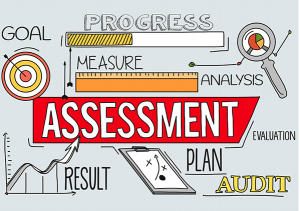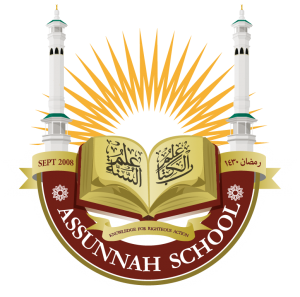Intent
At the end of their Key Stage 2 experience, the Assunnah child will have the skills and knowledge to be an exceptional citizen and succeed in life. Alongside British Values, our Islamic values of having faith, tolerance, respect, patience, gratitude and justice permeate the teaching of every subject area and underpin the inclusive nature of our broad and rich curriculum.
It is our firm belief that every child should leave Assunnah Primary with the knowledge, skills and education that prepares them for secondary school, adult life and the world of work, a sense of responsibility as a future global citizen; ambition and an awareness of their limitless potential and a thirst to be a motivated learner for life.
Our curriculum is broad and based on the National Curriculum Framework 2014. It is enhanced and complemented by linking to a rich Islamic heritage of beliefs, history and spiritual and moral guidance. An example is Islam’s elevation and active encouragement to acquire beneficial education emphasised through our morning prayer taken directly from the Holy Qur’an and prophetic tradition: ‘O Allah, I ask you for beneficial knowledge and good sustenance, and acceptable deeds”. Thus, it will equip our pupils with Knowledge for Righteous Action.
Implementation
We have drawn on Schemes of Work to create and sequence a whole-school curriculum. We feel that unqualified teachers working towards a qualification will benefit from high-quality resources that show progression and provide the basis for individual CPD. Each year group has a termly overview which maps out what will be taught and when. The must-know knowledge and skills for each ‘learning challenge’ is carefully mapped out by our half termly overviews and knowledge organisers. Pupils will have the opportunity to do this by accessing high-quality English and mathematics lessons and reading a rich selection of books; RSE, RE through Tarbiyyah and Values-based education, sports tournaments and other competitions across the curriculum. We follow schemes of work that are adapted and selected for the best outcomes.
The schemes of work are as follows:
Maths – White Rose Maths
English – Literacy Shed and the use of quality books
Spelling – Twinkle
Reading – The VIPERS approach, with planning from Literacy Shed (KS1) and Comprehension Plus
Science – Plan Bee and outstanding Science
Geography –Plan Bee
History – Plan Bee Units
RSE– Association of Muslims Planning + Tarbiyyah and Values Planning
NB: Protected Characteristics will be taught as part of our RSE delivery throughout the academic school life, which is further explained in the RSE/RE Policy
Art – NC14 embedded within units of work that are bespoke or taken from Twinkl
D.T. – NC14 embedded within topic areas (Year 1) and Twinkl (KS2)
Computing – Kapoow Planning
PE – Twinkl
Quran – El Bardadiyah/Anouraniyah
Arabic – Arabic Companion/Arabiyatu bayna yadayk.
Aspects of learning are enriched in other areas wherever possible, particularly in Key Stage 1. For example, the KS1 timetable includes a Foundation Focus period each day where learning is reviewed and revisited in ‘real-world’ application. Across both key stages, reading is a crucial window into other subject areas, while writing allows children to include learning from other topics within their composition.
Vocabulary development has also been considered. Children are expected to understand and apply topic-specific vocabulary, which becomes more complex as they move through the academic year and critical stages. They are also expected to understand and accurately use Tricky Words (Year 1), HFW (Year 2) or the statutory spellings (KS2) within all topics, as appropriate. Some subjects have a vocabulary progression document within the subject files for further reference.
Generally, the curriculum is further enriched with planned assemblies delivered by the Headteacher that reflect the British and Islamic calendar of events. Activities are incorporated into the school timetable to engage pupils further, such as spoken word performances and Science Weeks, World Book Day and Theme Days, trips, and workshops are planned regularly. These include visits to the local library and museums and planned trips to places of national and local interest, such as the House of Parliament.
Assessment:
Assessment is completed in both formative and summative form. Children’s data is collected on both a qualitative and quantitative basis and is used to inform future teaching and learning activities. Further information can be found in our Assessment and Recording and Reporting Policy. From Year 1 to Year 6, children are also assessed in writing half-termly. This is to assess the impact of high-quality planning and teaching through quality books and to support children lagging behind the year group expectations.
CPD is offered regularly and from the beginning of the year. The school’s SDP and individual development routes determine the training that is offered. When there are costs involved, where possible, the school covers the cost of the CPD through a subscription for membership – such as with the Plan Bee or Twinkl – or by paying for courses directly, as they have done for the Bar Modelling Course offered by White Rose Maths.
The impact of the CPD has been a better quality of teaching and learning and a more conscious approach on the teachers’ part in planning and delivering learning that is engaging and effective. This year, we aim to continue working on areas where improvement is required, such as directing ALL staff to undertake CPD training.
CPD linked to subject knowledge in Phonics, Topic (Geography and History) and Maths (via the DfE Mathematics Guidance), as well as supporting staff in developing teaching strategies by providing admission/information about courses linked to effective differentiation; high-order questioning and ‘chunking’ teaching.
Our curriculum is exciting and challenging. We have a variety of topics and units that can be interlinked and enriched to create experiences for our children that are engaging and outward-facing.
The most vital aspect of our curriculum is its breadth and the efforts made by staff to ensure that the delivery of Core learning, namely Maths, English and Science, is of a high standard. The interactive and engaging learning activities that make up the learning for History, Geography and RSE and Values are of a calibre close to this. This is evident from the Learning Walks, as well as listening to pupils talking about their learning and observing their engagement unobtrusively during lesson time.
Impact
Recording and Reporting
Attainment is recorded on the mark assessment, and teachers are expected to update the software tracker every term, recording the objectives that children have been taught, their attainment, and their targets. Attainment in all subjects will be recorded; parents will be informed of pupil progress, attainment, and targets at least 2times per year – in January and May.
Trackers
MARK will be used to track attainment and progress. All pupils and intervention groups are organised into year groups or intervention groups. Assessments and formative tracking will be tracked on MARK.
Individual needs are highlighted as soon as possible, and intervention is provided as necessary, such as for children with EAL or SEND. We will have a timetable of observation and recording to ensure that teachers can raise concerns, gather evidence and meet with the Curriculum Coordinator to implement initiatives such as interventions, IEPs (if necessary) and other support via a QFT approach. We also work closely with parents and guardians to ensure that learners receive the support they need to engage and enjoy their individual learning journeys.
To ensure that our curriculum is fit for purpose, teachers use formative and summative assessments constantly. These are not necessarily in ‘exam’ or ‘test’ style: rapid recall of basic knowledge; independent application of skills and knowledge to complete projects or tasks; or discussion and collaboration are all tools that teachers are encouraged to use to assess learners’ understanding of the skills and knowledge they are expected to have learned over the course of a topic or unit of work.
Central to our curriculum is pupil ownership of their learning. To encourage children to view their learning as an individual choice, we will be organising ‘WOW Work’ books for every child in every year group from this academic year. Within the pages of this book will be a selection of 7 pieces of work – one for every half term and a bonus piece – chosen by the children from the plethora of work they produce and reflective of the pieces they take the most pride. This ‘book’ will follow the children through their journey at Assunnah Primary, from their first day in Year 1 (or when they enrol) to their last day at our school. We want them to take pride in their achievements and begin to realise that their investment in their learning is measurable over time. This book will be theirs to keep and refer to and, we hope, a source of lifelong pride and self-recognition of their resilience and effort.
As always, feedback from these assessments and reviews will be used to improve further and enhance the learning opportunities and curriculum design at Assunnah Primary. We will measure the impact of the curriculum through other areas, such as
Pupil achievement data.
Attendance rates.
Behaviour.
Extra Curriculum registers.
Pupil questionnaires.
Pupil Voice.
Parent questionaires.
